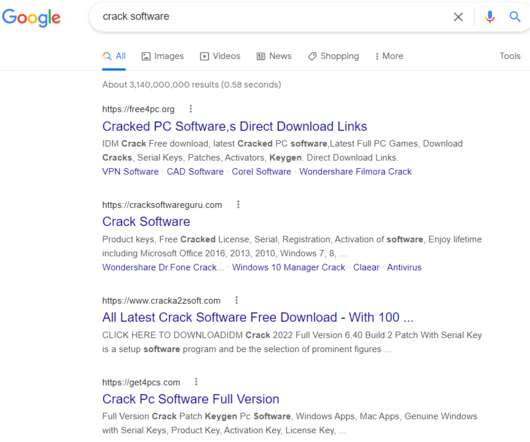Mobile malware evolution 2020
SecureList
MARCH 1, 2021
In 2020, Kaspersky mobile products and technologies detected: 5,683,694 malicious installation packages, 156,710 new mobile banking Trojans, 20,708 new mobile ransomware Trojans. The word “covid” in various combinations was typically used in the names of packages hiding spyware and banking Trojans, adware or Trojan droppers.












Let's personalize your content